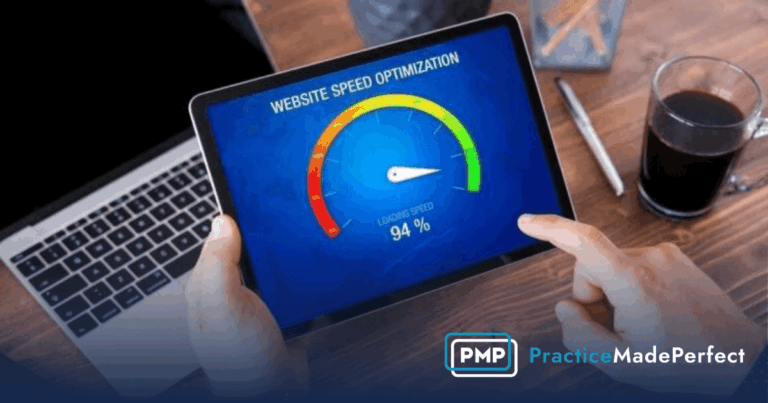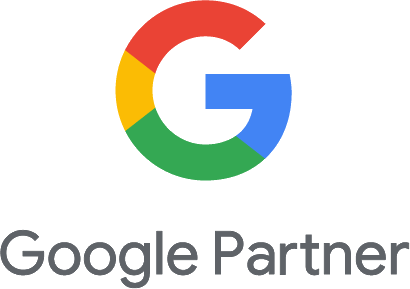Like it or not, consumers have incredibly short attention spans. This includes potential clients of your law firm.
If your law firm website loads too slowly, visitors will get frustrated and leave. In fact, research shows slow-loading websites have higher bounce rates, fewer conversions and rank lower in Google search results.
In this blog, PMP explains how fast you want your website to load, how slow page speed hurts your ability to reach potential clients and what steps you can take to increase site speed.
If you are looking for customized solutions for improving site speed or resolving other digital marketing challenges with your website, contact PMP. We have been helping law firms across the nation get more from their digital marketing efforts for over 15 years.
Is My Website Loading Too Slowly?
Chances are, if you are asking the question, your site may be loading too slowly. Lawyers often question page speed when they visit their website and notice it seems to be slower than other sites or apps they use on their smartphones.
The industry standard for page speed is less than three seconds, although making your website load in under two seconds is even better. You can use Google’s PageSpeed Insights to check the loading times for the critical pages on your website, such as your homepage or landing pages.
There are a few metrics used to determine how fast a website loads, including:
- Page load time, which is how long it takes for all the content on the page to display
- Time to first byte is the length of time it takes for a browser to receive the first byte from a web server
- First contentful paint is the first point when a user can read content on the page
The experienced digital marketing professionals at PMP have detailed knowledge of these metrics. We also know what steps to take to increase a website’s load time. If you have concerns about your website’s page speed, contact us to discuss your situation. We have the staff, experience and resources to assist you with this and other aspects of your website’s SEO and user experience.
Slow Websites Make a Bad First Impression
When potential clients/customers visit a website, there is a built-in expectation for the site to load quickly. If that does not happen, visitors get the impression the business is unprofessional. Visitors may begin to wonder where else the business cut corners and how this may affect their ability to provide quality service. In other words, slow websites can cause visitors to lose trust.
Trust is vital for people who are seeking legal help. Most people do not have a detailed understanding of legal issues. They want to feel confident that the law firm they choose can handle their case. If it looks like a law firm is behind the times, people are likely to seek out another firm.
People have short attention spans, especially when they get frustrated. This creates friction and makes them more likely to look elsewhere for the product or service they are seeking. While page speed is just one factor that can frustrate users, it is a big one.
How Slow Site Speed Could Affect Google Rankings
Building a fast website is about more than just creating a good first impression, it can hurt your website’s SEO. Slow-loading websites create a poor user experience, and Google pushes websites like that lower in the rankings.
Google prioritizes websites that create a positive, seamless user experience, as these sites are more likely to provide the information, product or service users are looking for.
Google bots have a harder time crawling through slow websites. That means they may not be able to index all the content on your website.
It is important to remember that speed is just one ranking factor, however. You also need to provide high-quality content. Site speed is not going to overcome uninformative or vague content.
How Can Law Firms Make Their Websites Faster?
There are numerous ways to speed up the load time for a website. For example, you need to ensure your images and other multimedia files are optimized. You can compress some of these files to make them smaller, so they will load faster. Other image optimization tips include:
- Using responsive images to improve user experience – this ensures the appropriate-sized image loads for the device being used
- Using JPEG format whenever possible, as PNG files take up more space
- Consider reducing color depth, just be cautions not to compromise the look of the image in the process
Here are some other strategies for increasing page speed on law firm websites:
- Eliminate unnecessary elements on the page – These days, less is more when it comes to websites. Once you determine the most important elements on your website, you can get rid of anything extraneous. Every element of the page creates an HTTP request that slows the site down.
- Enable browser caching – Make sure to allow browser caching, so your page will load faster for return visitors. Browser caching allows browsers to store static files like images, CSS and JavaScript on the user’s hard drive. This feature reduces the need to redownload things when the user comes back to your website.
- Minify CSS and JavaScript – This refers to removing unnecessary comments, whitespace and code, making CSS and JavaScript files smaller so they can load faster.
- Avoid adding unnecessary plugins – Plugins can be incredibly helpful, but they take time to load. They may also create technical issues. Stick with the plugins you really need and get rid of everything else.
- Get rid of render-blocking resources – Browser rendering is what happens when browsers stop so they can execute JavaScript or CSS resources. This slows down your website. The solution is to set things up so the necessary content loads first.
Site speed is not something you can take care of once and ignore. You need to continually monitor site speed to determine if your site is loading too slowly. You also need to implement best practices to ensure that additions to your website do not slow the site down too much. For example, new images should be compressed before they are added to the website.
Contact PMP to discuss page speed and other digital marketing challenges for your law firm. We have been helping law firms sign more cases for more than 15 years.

